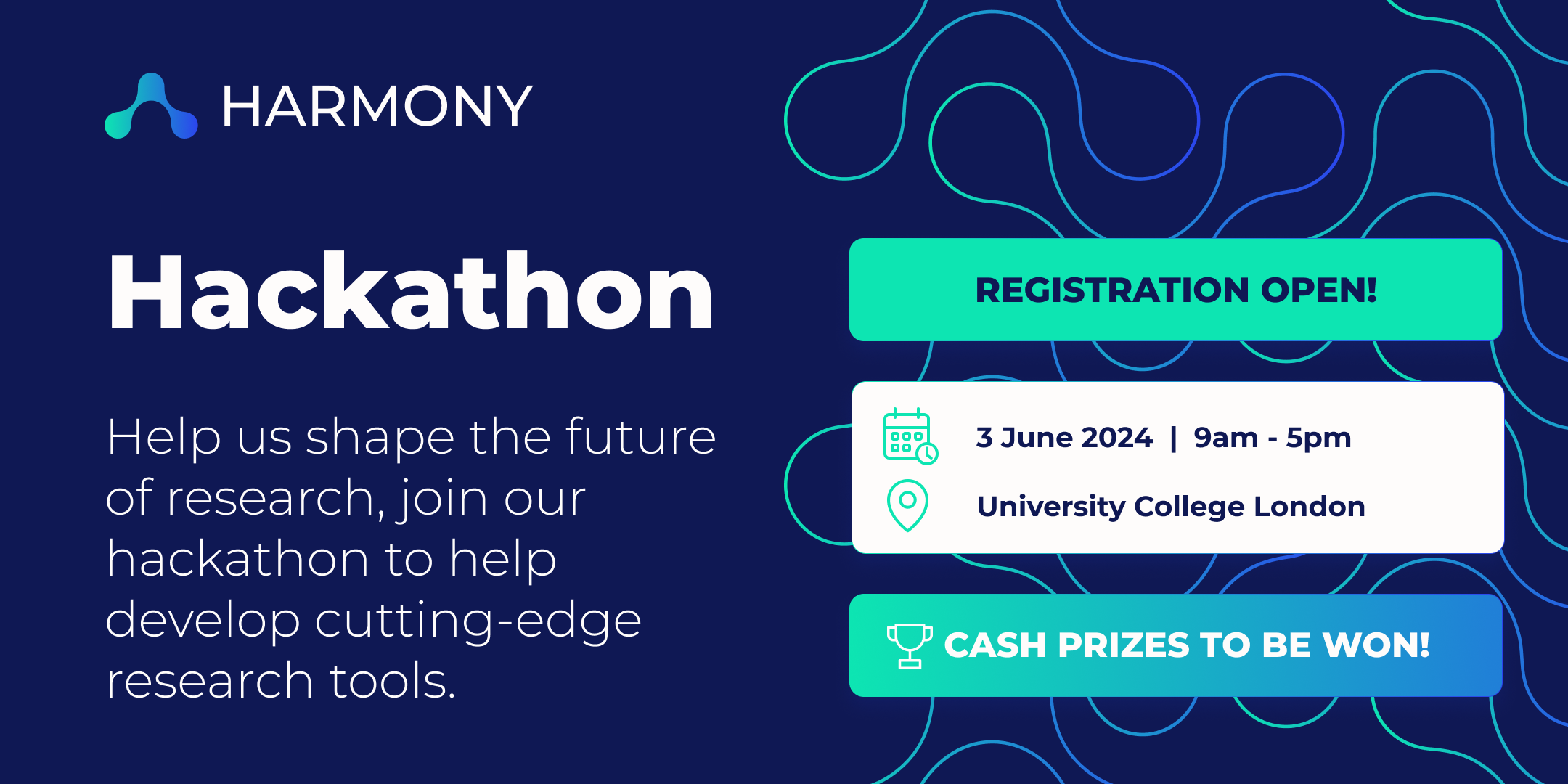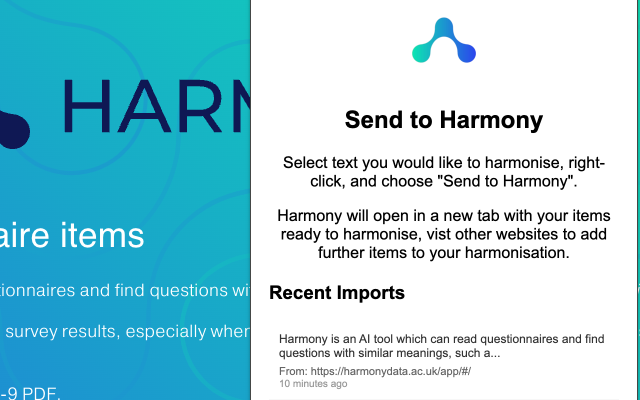
Come and join us for a day of coding, collaboration, and creativity at the Harmony Hackathon! Whether you’re a seasoned programmer or just starting out, this event is perfect for anyone interested in tech and innovation. You can sign up on Eventbrite!
The AI Hackathon event will be held at Chandler House (UCL), providing a vibrant and inspiring atmosphere for all participants. Get ready to work on exciting projects, learn new skills, and connect with like-minded individuals. Don’t miss out on this opportunity to showcase your talents and help us shape the future of research.
This is an in-person hackathon happening in London on 3 June 2024.
Make sure to also join our community on Discord, check out the ideas list and try our Kaggle competition!
📅 Date: 3 June 2024
🕘 Time: 9-5pm - Registration 9am sharp
🏢 Where: University College London, Room B02 in Chandler House, 2 Wakefield St, London WC1N 1PF
🍴 Food and refreshments will be available to all attendees throughout the day.
🏆 Cash prizes awarded to the winners and runners up - £100 per person in the winning team and £50 per person for runners up!
What will we be working on?
This Hackathon is to improve Harmony in general and we would like help with a number of areas - your team could pick one or choose your own! If you don’t have a team, don’t worry, we’ll get you involved on the day!
💻 We’ll be working on a range of problems, you can find a full list on our Github
Ideas of the problems that we will be solving are here
Video tutorial on how to install Harmony front end and API
Video tutorial on how to install Harmony Python library
Harmony is an open source tool for social science research.

